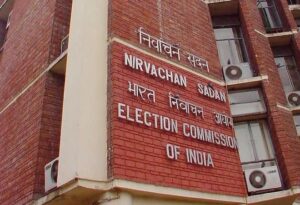Kharge Blasts BJP’s ‘Manuwadi System’ Amid Rising Atrocities Against Dalits

There are 46 pc more anti-Dalit atrocities and 91 pc more attacks on Adivasis, the Congress says, citing NCRB data. Figures from its recent report also highlight skyrocketing violence against women and children, and a shocking 1,400-fold increase in cyber crimes in BJP-ruled India
Congress president Mallikarjun Kharge had, on October 9, condemned the BJP’s “Manuwadi system,” describing the suicide note of senior Dalit IPS officer Y. Puran Kumar in Haryana as a “horrific testament to social injustice, inhumanity, and insensitivity” perpetuated by the current regime. The note, discovered after Kumar’s death, alleged “blatant caste-based discrimination” and harassment by superiors, prompting Kharge to decry the systemic failures under the Modi government.
In a follow-up post on X on October 10, Kharge escalated his critique, framing the incident as part of a “chain of events resulting from the Modi government’s direct assault on the fundamental principles of India’s Constitution, social justice, and equality.” Citing the latest National Crime Records Bureau (NCRB) report, he highlighted alarming trends from 2013 to 2023—during Modi’s tenure starting in 2014. “Atrocities against Dalits (the Scheduled Castes of India) have increased by 46 per cent and those against Adivasis (the Scheduled Tribes) have gone up 91 per cent under his governance,” Kharge stated, underscoring the regime’s failure to protect the marginalized.
He also pointed to surging crimes against women (up 44.7 percent) and children (up 204.5 percent), alongside a staggering 1,418 percent rise in cyber crimes. Accompanying his post was a short video titled ‘No Achhe Din’, which concluded with a damning indictment: “The ‘B’ in BJP stands for ‘betrayal’.” As a Dalit leader himself, Kharge’s words carried personal weight, reflecting the anguish of communities long sidelined.
Kharge linked Kumar’s tragedy to a series of recent incidents exposing caste-based violence and discrimination. He referenced the lynching of Hariom Valmiki in Raebareli, Uttar Pradesh, where a man from the Valmiki community was allegedly beaten to death by a mob. “This is a stark indicator of Uttar Pradesh’s crumbling law and order,” Kharge had said earlier, emphasizing that “if the individual had committed an offence, legal proceedings should have been initiated rather than people taking the law into their own hands.”
He also condemned the shoe attack on Chief Justice of India B.R. Gavai—a Dalit—in the Supreme Court, where an elderly lawyer shouted “Sanatan ka apman nahi sahenge (we will not tolerate insults to Sanatan Dharma)” before lunging at the CJI. “A person claiming to be a lawyer has attempted to hurl a shoe towards the chief justice of India taking the name of a religion,” Kharge recounted, noting condemnations from Sonia Gandhi, Rahul Gandhi, and even Prime Minister Modi—though “belatedly.”
Kharge urged decisive action against such perpetrators, accusing them of using religion and ideology to “undermine society.” He expressed sadness over the limited backlash: “I’m saying with sadness that the kind of reaction after this incident that came from the lawyers, governments, political parties was not on a large scale, but some progressive states, also progressive-thinking advocates and political party leaders have condemned it.”
Another cited case was the atrocities against elderly Dalit woman Kamla Devi Raigar in Sawai Madhopur, Rajasthan, under BJP rule, where she faced brutal assault. “All these recent incidents are not just isolated events, but a dangerous manifestation of the RSS–BJP’s feudal mindset,” Kharge warned in his post. He accused the ruling establishment of fostering a dehumanizing culture that diminishes women’s status and aims to “snatch away the fundamental rights of the people.”
“Those unnecessarily trying to disturb peace in society should be punished,” he added firmly. Kharge’s intervention signals the Congress’s intensified campaign against caste crimes, mob lynchings, and what it terms “bulldozer justice” in BJP-ruled states.
With assembly elections looming in Bihar this year and in several other states next year, the INDIA bloc—comprising Congress, RJD, Samajwadi Party, and allies—has reaffirmed its commitment to Dr. B.R. Ambedkar’s vision of equality. Leaders like Lok Sabha Leader of Opposition Rahul Gandhi, Congress MP Priyanka Gandhi Vadra, RJD’s Tejashwi Yadav, and Samajwadi Party’s Akhilesh Yadav have urged unity. “We have to fight, instead of staying quiet—if a person who is occupying the post of a chief justice is insulted by hurling a shoe at him, what will be the condition of a common man or an officer or clerk?” Kharge questioned, highlighting the vulnerability of ordinary Dalits.
The post also critiques the Modi government’s silence amid suffering. Echoing Jairam Ramesh’s earlier remarks on the PM’s “performative statesmanship,” Kharge wrote: “Dalits, Adivasis, backward classes, minorities and weaker sections are bearing the brunt of this, and you are keeping your eyes shut to these issues while remaining engrossed in your own spectacles.” He warned that BJP-RSS politics threatens democracy in the “world’s largest democracy” by creating intimidation for marginalized groups. “India will be governed by the Constitution, not by the decrees of any extremist ideology,” he asserted.
Kharge’s message transcends individual tragedies, leveraging statistics and stories to center social justice in India’s democratic discourse. It challenges Prime Minister Modi and civil society to confront perpetrators and systemic biases sustaining discrimination, intolerance, and hate crimes. As nationwide protests brew—from Ladakh’s Sixth Schedule demands to Manipur’s justice vigil—the Congress aims to galvanize the political class and citizens for equality. Almost eight decades post-Independence, Kharge reminds that the battle for constitutional rights, as envisioned by Ambedkar, remains unfinished.





